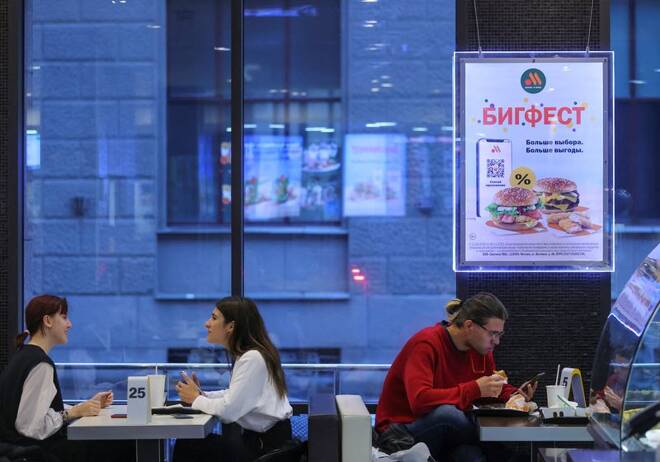Advertisement
Advertisement
Russia’s service sector contracts for second month running – PMI
By:
MOSCOW (Reuters) - Conditions in Russia's services industry declined for the second month running in November, a business survey published Monday showed, as companies continue to face pressure from Western sanctions, weak consumer demand at home and logistics challenges.
MOSCOW (Reuters) – Conditions in Russia’s services industry declined for the second month running in November, a business survey published Monday showed, as companies continue to face pressure from Western sanctions, weak consumer demand at home and logistics challenges.
The S&P Global Purchasing Managers’ Index (PMI) for Russian services climbed to 48.3 after hitting an eight-month low of 43.7 a month earlier – but remained below the crucial 50 mark that separates expansion from contraction.
In a significant turnaround from a month earlier – when the impact of President Vladimir Putin’s order to call up more than 300,000 reservists to fight in Ukraine was weighing on the economy – firms reported only a “marginal decline in new business” during November, S&P Global said.
The mobilisation order saw demand fall across the economy, as hundreds of thousands of men joined the army or fled Russia and a fresh wave of economic uncertainty hit the country.
The latest PMI surveys – closely watched indicators of economy performance – show signs that Russian firms are tentatively recovering from the initial economic blow.
A sister survey published last week showed Russia’s manufacturing industry expanded at its fastest pace in almost six years during November.
But Russian service companies are far from out of the woods just yet, as they face a host of challenges due to sanctions and the ongoing impact from what Russia calls a “special military operation” in Ukraine.
Export orders fell faster in November than a month earlier, S&P Global said, while domestic demand remained weak, with employment levels falling and prices for supplies and logistics on the rise.
(Reporting by Jake Cordell; Editing by Toby Chopra)
About the Author
Reuterscontributor
Reuters, the news and media division of Thomson Reuters, is the world’s largest international multimedia news provider reaching more than one billion people every day. Reuters provides trusted business, financial, national, and international news to professionals via Thomson Reuters desktops, the world's media organizations, and directly to consumers at Reuters.com and via Reuters TV. Learn more about Thomson Reuters products:
Advertisement
